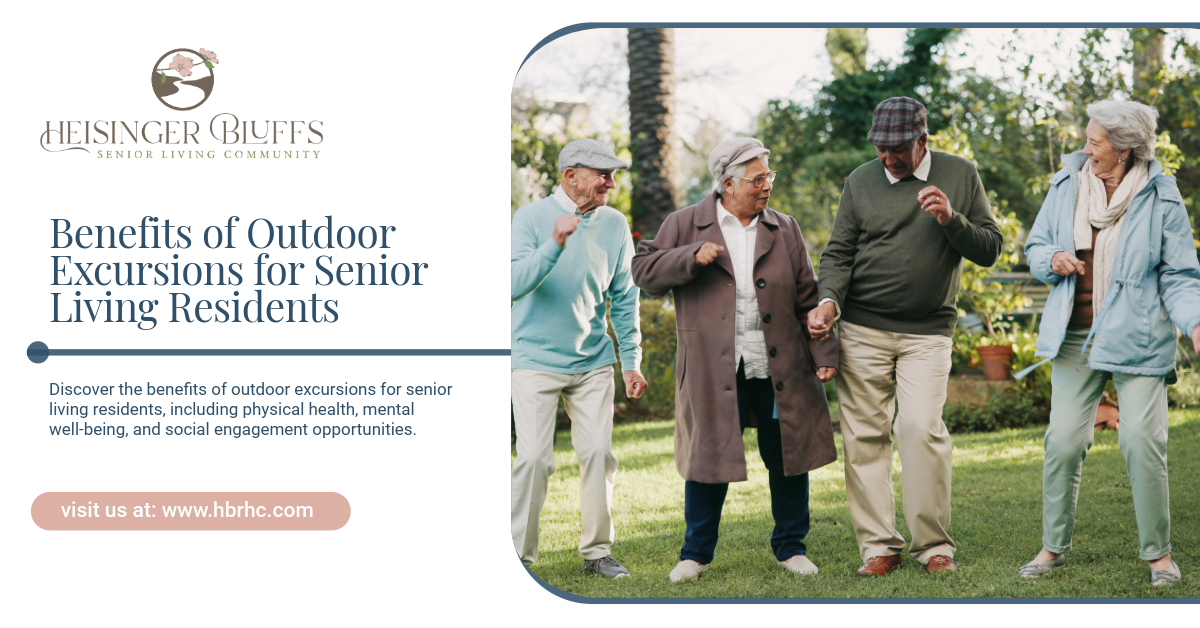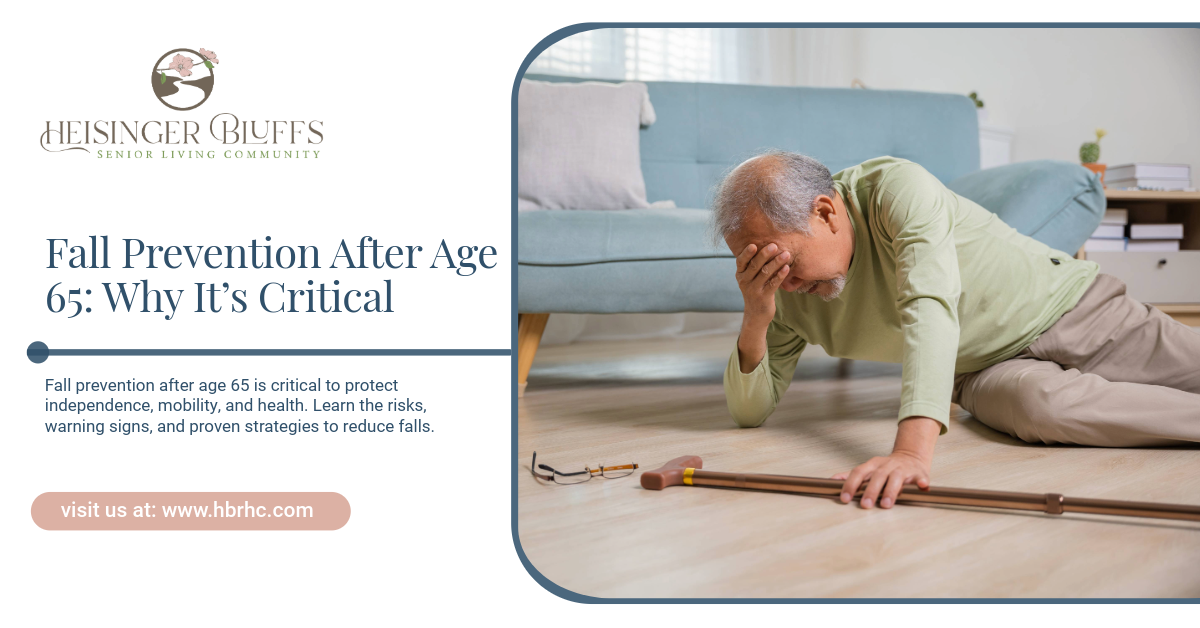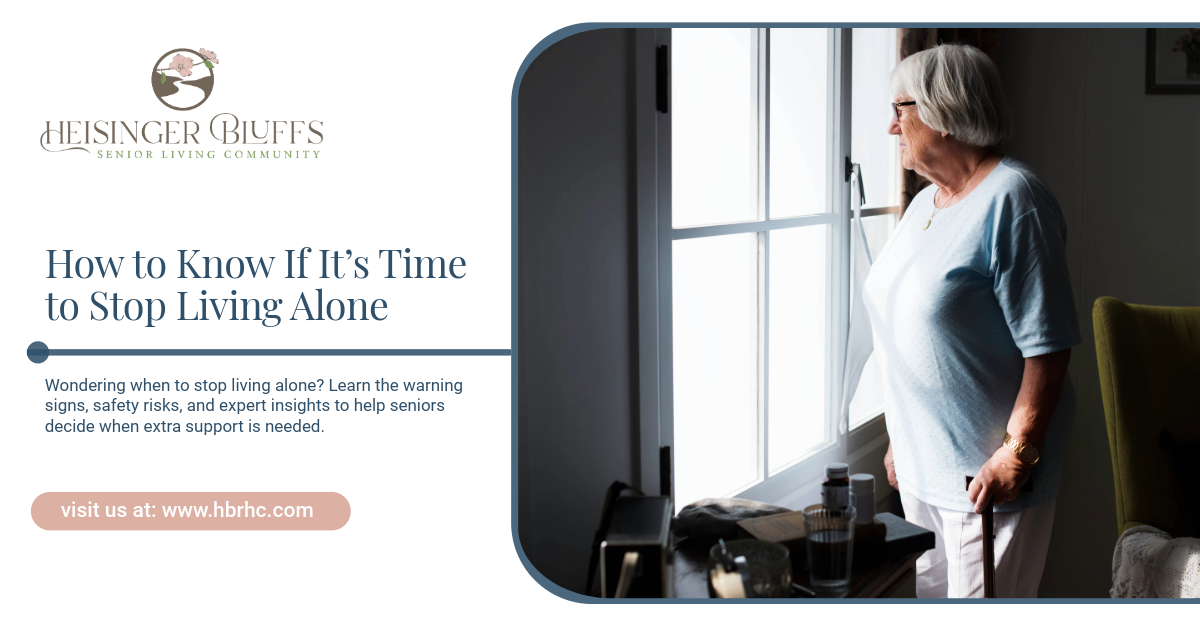The Benefits of Outdoor Excursions for Senior Living Residents

Key Highlights
- Outdoor excursions improve physical health through gentle exercise and movement.
- Spending time in nature enhances mental well-being and reduces stress.
- Social interaction during outings fosters connection and combats isolation.
- Exposure to sunlight supports vitamin D production and bone health.
- Excursions provide opportunities for cognitive stimulation and new experiences.
- Regular outdoor activities contribute to overall happiness and life satisfaction.
Benefits of Outdoor Excursions for Seniors
Outdoor excursions play a vital role in enriching the lives of senior living residents. From short walks in local parks to organized trips to cultural attractions, these activities offer numerous benefits that support physical, mental, and social well-being. Participating in outdoor excursions can boost mood, strengthen social bonds, and promote a sense of purpose, all while keeping residents active and engaged.
1. Physical Health Benefits
Physical activity is essential for seniors, and outdoor excursions provide a natural way to stay active.
- Gentle exercise: Walking, stretching, and light gardening improve cardiovascular health and maintain mobility.
- Balance and coordination: Uneven terrain, stairs, and outdoor paths help strengthen muscles and enhance stability.
- Bone and joint health: Movement combined with exposure to sunlight supports bone density and joint flexibility.
Physical Health Benefits of Outdoor Excursions
| Physical Benefits | Activity Type | Safety Tips |
|---|---|---|
| Walking in parks | Cardiovascular health, leg strength | Wear supportive shoes, use handrails if needed |
| Light hiking | Muscle tone, balance | Choose beginner-friendly trails |
| Gardening excursions | Flexibility, strength, fine motor skills | Use gloves, avoid overexertion |
| Outdoor stretching | Joint mobility, stress relief | Perform on flat surfaces, use stable support |
2. Mental and Emotional Well-Being
Being outdoors offers powerful mental health benefits for seniors.
- Stress reduction: Nature exposure lowers cortisol levels and calms the mind.
- Improved mood: Fresh air, natural light, and scenic surroundings boost happiness.
- Cognitive stimulation: Observing wildlife, exploring new locations, and navigating paths encourage mental engagement.
Example: Mindfulness in Nature
Taking a slow walk in a botanical garden allows seniors to focus on sights, sounds, and scents, enhancing mindfulness and reducing anxiety.
3. Social Engagement
Outdoor excursions provide natural opportunities for social interaction.
- Group outings: Trips to museums, local markets, or parks encourage camaraderie and conversation.
- Shared activities: Participating in bird-watching, picnics, or guided tours fosters teamwork and friendship.
- Reducing isolation: Regular outings keep seniors connected to peers, family, and community.
4. Vitamin D and Sunlight Exposure
Sunlight is a natural source of vitamin D, essential for seniors’ health.
- Bone health: Vitamin D supports calcium absorption, reducing the risk of osteoporosis.
- Mood enhancement: Sunlight triggers the production of serotonin, which can alleviate mild depression.
- Immune support: Adequate vitamin D levels help maintain a strong immune system.
Tip: Use sunscreen and wear hats to protect against overexposure while enjoying the outdoors.
5. Opportunities for New Experiences
Outdoor excursions allow residents to explore and enjoy new environments.
- Cultural outings: Visiting art galleries, historical sites, or local festivals enriches experiences.
- Nature-based activities: Bird-watching, photography, or scenic drives provide relaxation and engagement.
- Learning opportunities: Trips can include educational talks, workshops, or guided tours.
These experiences stimulate curiosity and provide a sense of adventure, contributing to a higher quality of life.
6. Encouraging Independence and Confidence
Being part of organized outdoor activities encourages seniors to remain independent and self-reliant.
- Navigating environments: Walking through parks, navigating trails, or exploring new locations builds confidence.
- Decision-making: Choosing activities or participating in planning promotes autonomy.
- Sense of accomplishment: Successfully completing excursions fosters pride and satisfaction.
7. Combining Physical, Social, and Cognitive Benefits
Outdoor excursions integrate multiple wellness aspects simultaneously:
- Physical: Walking or light exercise strengthens the body.
- Social: Interaction with peers and caregivers reduces loneliness.
- Cognitive: Learning about nature, history, or local culture stimulates the mind.
By participating in a combination of activities, seniors enjoy holistic health benefits that improve their overall lifestyle.
Planning Safe and Enjoyable Excursions
To maximize the benefits of outdoor excursions, careful planning is important.
- Assess mobility levels: Choose destinations and activities suitable for participants’ physical abilities.
- Provide necessary support: Include walking aids, benches, or staff assistance as needed.
- Monitor weather conditions: Plan outings during comfortable temperatures and bring hydration and sun protection.
- Engage in variety: Rotate destinations to include nature, cultural sites, and local attractions.
At Heisinger Bluffs, residents enjoy well-organized outdoor excursions that promote physical activity, mental stimulation, and social connection. From local park walks to cultural trips, these activities provide opportunities for exploration, relaxation, and enrichment, helping seniors live healthier, happier, and more engaged lives. Contact us today!
Frequently Asked Questions
How often should seniors participate in outdoor excursions?
Ideally, seniors can participate in outdoor activities several times a week, depending on mobility, health, and weather conditions.
Are outdoor excursions safe for seniors with limited mobility?
Yes. Activities can be adapted with walking aids, benches, shorter routes, and staff assistance to ensure safety.
Can outdoor excursions improve mental health in seniors?
Absolutely. Exposure to nature, fresh air, and sunlight reduces stress, boosts mood, and provides cognitive stimulation.
What types of outdoor excursions are most beneficial for seniors?
Gentle walks, park visits, cultural outings, light gardening, and nature exploration are all highly beneficial.
How can caregivers encourage participation in outdoor activities?
Offer structured group outings, provide necessary support, highlight social and recreational benefits, and tailor activities to residents’ interests.
Sources:
- https://www.cottagelitchfield.com/blog/benefits-of-outdoor-activities-for-seniors
- https://www.cdc.gov/physical-activity-basics/health-benefits/older-adults.html
- https://pmc.ncbi.nlm.nih.gov/articles/PMC8125471/
- https://mcpress.mayoclinic.org/healthy-aging/a-surprising-key-to-healthy-aging-strong-social-connections/
- https://www.uclahealth.org/news/article/ask-the-doctors-round-sun-exposure-vital-to-vitamin-d-production











